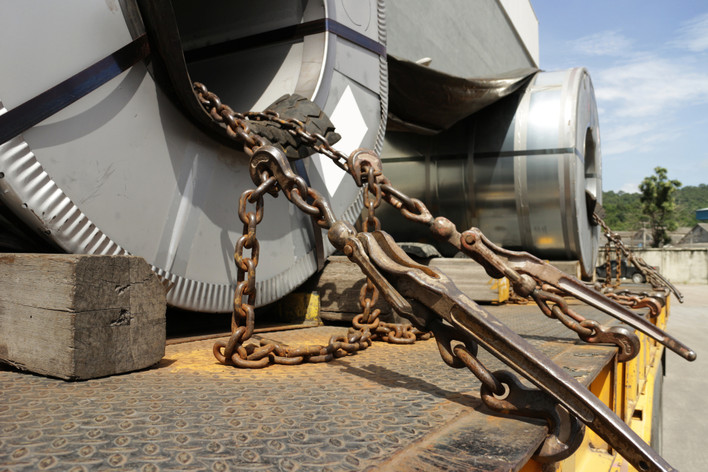Agriculture sustains the global population and underpins the economies of developing countries, with machinery playing a pivotal role in the efficiency and productivity of these operations.
However, the condition of such equipment directly influences the safety of farm operations. Neglected maintenance can lead to accidents, diminished efficiency, and even catastrophic failures, emphasizing the crucial link between well-maintained machinery and farm safety.
Table of Contents
The Importance of Agricultural Equipment Maintenance
Maintaining agricultural equipment is not just about prolonging its service life; it’s a critical safety practice. A well-maintained machine operates as expected, with reduced risks of unexpected malfunctions that can lead to accidents. For instance, regular checks can identify worn-out parts that might fail during operation, posing dangers to the operator and bystanders.
Moreover, maintenance plays a crucial role in ensuring that machinery operates at optimal efficiency, saving time and resources. For example, a properly maintained engine uses fuel more efficiently, while sharp and well-adjusted tools make clean cuts or till the soil effectively, preserving soil health and crop quality.
Statistically, the correlation between equipment maintenance and safety is clear. The International Journal of Agricultural Safety and Health has reported that regular maintenance can reduce the incidence of farm accidents by up to 60%. These statistics highlight not just the value of maintenance in preventing equipment failure, but also its role in protecting lives.
Common Types of Agricultural Equipment and Their Maintenance Needs
Farm machinery varies widely, from tractors that pull and power other implements to specialized equipment like harvesters and irrigation systems. Each type has its unique maintenance needs:
Tractors
The workhorses of the farm, tractors require regular oil changes, coolant level checks, and hydraulic system inspections. Tire pressure should be checked frequently to ensure even wear and optimal fuel efficiency.
Harvesters
These machines need thorough cleaning after each use to remove debris that can clog mechanisms. Blades and cutting surfaces should be inspected for wear and replaced or sharpened as necessary.
Irrigation Systems
Maintenance includes checking pumps for signs of wear, inspecting pipes for leaks, and ensuring that sprinkler heads are clear of debris and functioning correctly.
For each piece of equipment, a maintenance log should be kept, detailing all checks, repairs, and replacements. This record not only helps in planning maintenance activities but also serves as a valuable tool when diagnosing future problems.
Best Practices for Agricultural Equipment Maintenance
Maintaining agricultural equipment is essential for efficient operation and long-term reliability. Following these best practices will ensure your machinery remains in top condition, safeguarding your investment and the safety of farm operations:
1. Regular Cleaning
Dirt and debris can cause significant wear and tear on machinery. After use, clean equipment to prevent the buildup of residues that can corrode parts or clog mechanisms.
2. Routine Inspections
Conduct thorough inspections at regular intervals, checking for signs of wear, damage, or potential failure. Early detection of issues can prevent costly repairs and downtime.
3. Adhere to Manufacturer’s Maintenance Schedule
Manufacturers provide a maintenance schedule for a reason. Following this schedule ensures that all aspects of the equipment are maintained in a timely manner, reducing the risk of unexpected failures.
4. Use Genuine Spare Parts
While aftermarket parts may be cheaper, genuine spare parts are designed specifically for your machinery and can significantly extend its service life and reliability.
5. Maintenance Logbook
Keep a detailed record of all maintenance activities, repairs, and part replacements. This logbook is invaluable for planning future maintenance and can also be a crucial asset when selling the equipment.
6. Proper Storage
Protect your machinery from the elements by storing it in a covered, dry area. This prevents rust and decay, especially during off-season periods.
7. Professional Training
Ensure that all operators are trained not only in the use of the machinery but also in its basic maintenance. Knowledgeable operators can identify potential issues before they become major problems.
Overcoming Challenges in Maintenance for Farmers in Developing Countries
Farmers in developing countries face unique challenges in maintaining their agricultural equipment, from limited access to spare parts to a lack of technical knowledge. However, these obstacles can be overcome with innovative strategies:
Access to Genuine Spare Parts
Finding reliable sources for genuine spare parts can be a challenge. Farmers should leverage online resources to compare suppliers, focusing on those with positive reviews from the agricultural community.
Ensuring you choose a supplier with a comprehensive catalog of high-quality parts is crucial for maintaining your equipment effectively.
Knowledge and Training
Participate in local workshops or online training sessions to learn more about equipment maintenance. Many agricultural cooperatives and NGOs offer training programs designed to improve technical skills among farmers.
Financial Planning
Maintenance can be costly, but neglecting it can lead to even higher expenses down the line. Setting aside a small portion of profits for maintenance can help mitigate these costs. Additionally, some suppliers offer financing options or discounted rates for bulk purchases.
Community Support
Forming or joining a local farming cooperative can provide access to shared resources, including maintenance tools and machinery. Cooperatives can also facilitate bulk purchases of spare parts, reducing costs for individual farmers.
Conclusion
The maintenance of agricultural equipment is not just a routine chore; it’s a critical investment in the safety and efficiency of farm operations. Adhering to best practices, overcoming challenges through innovative solutions, and understanding the importance of regular maintenance, can ensure their machinery operates reliably for years to come.
Let this guide serve as a stepping stone towards a safer and more productive farming practice, where well-maintained equipment lays the foundation for success.







